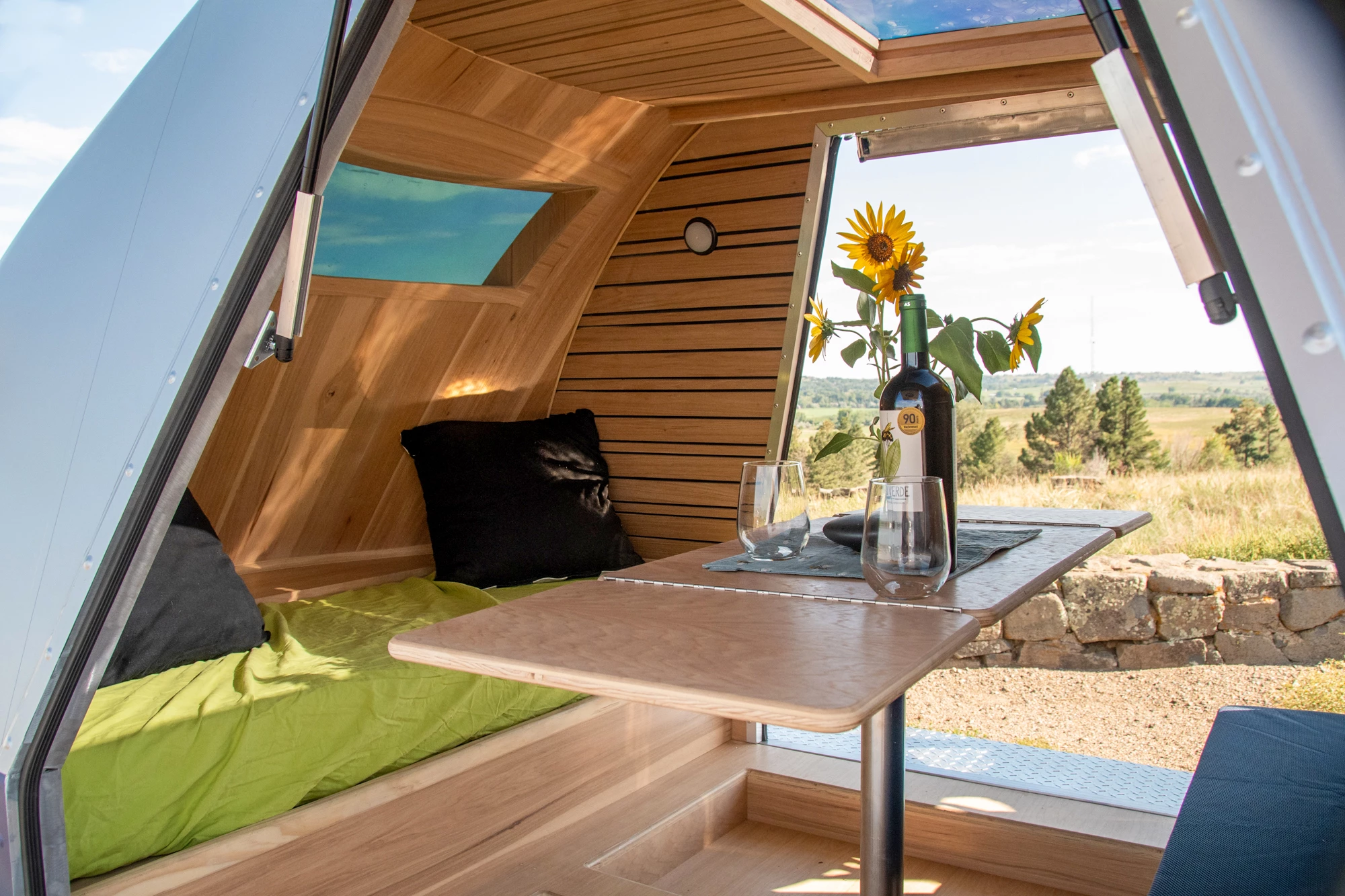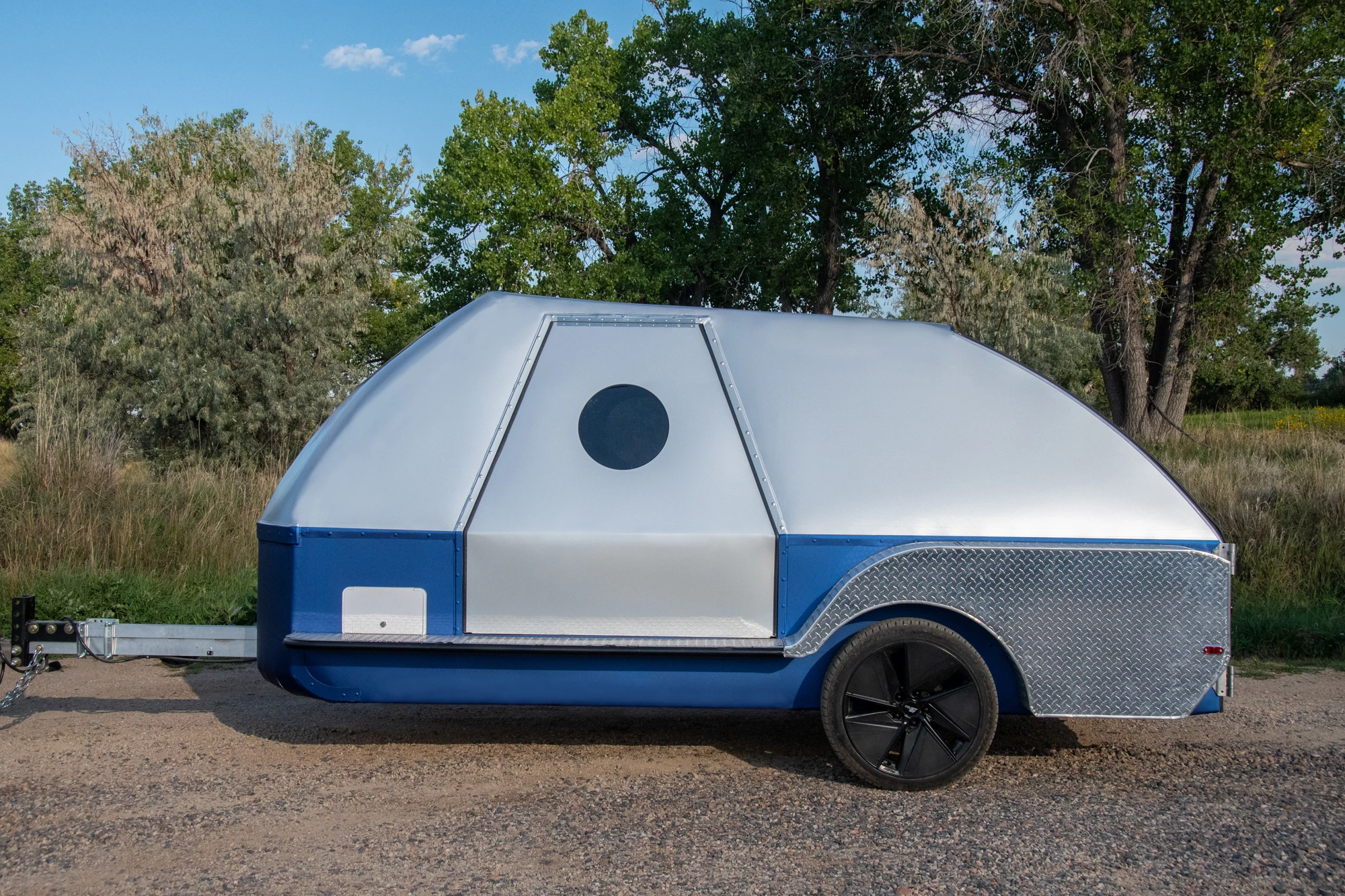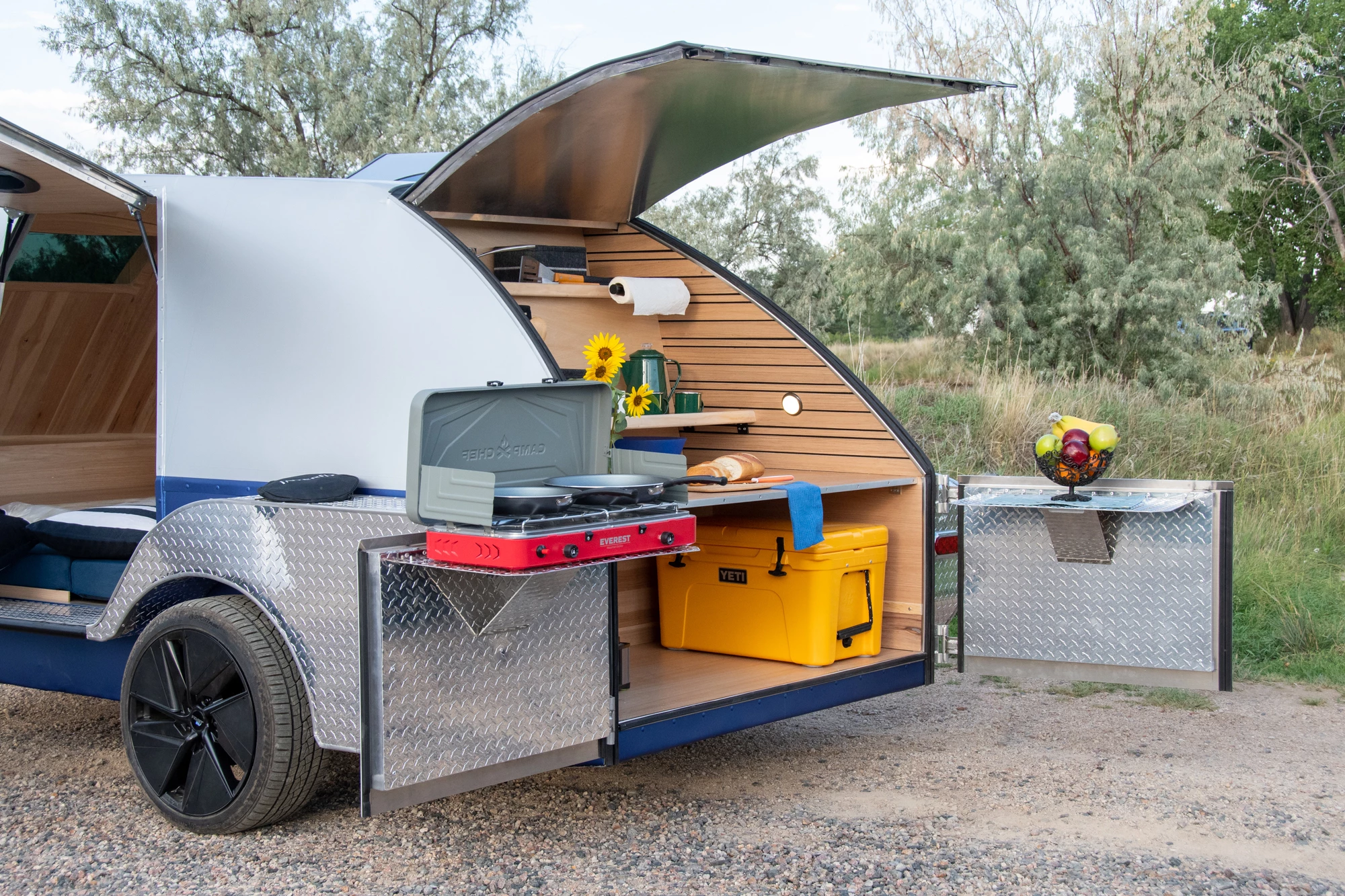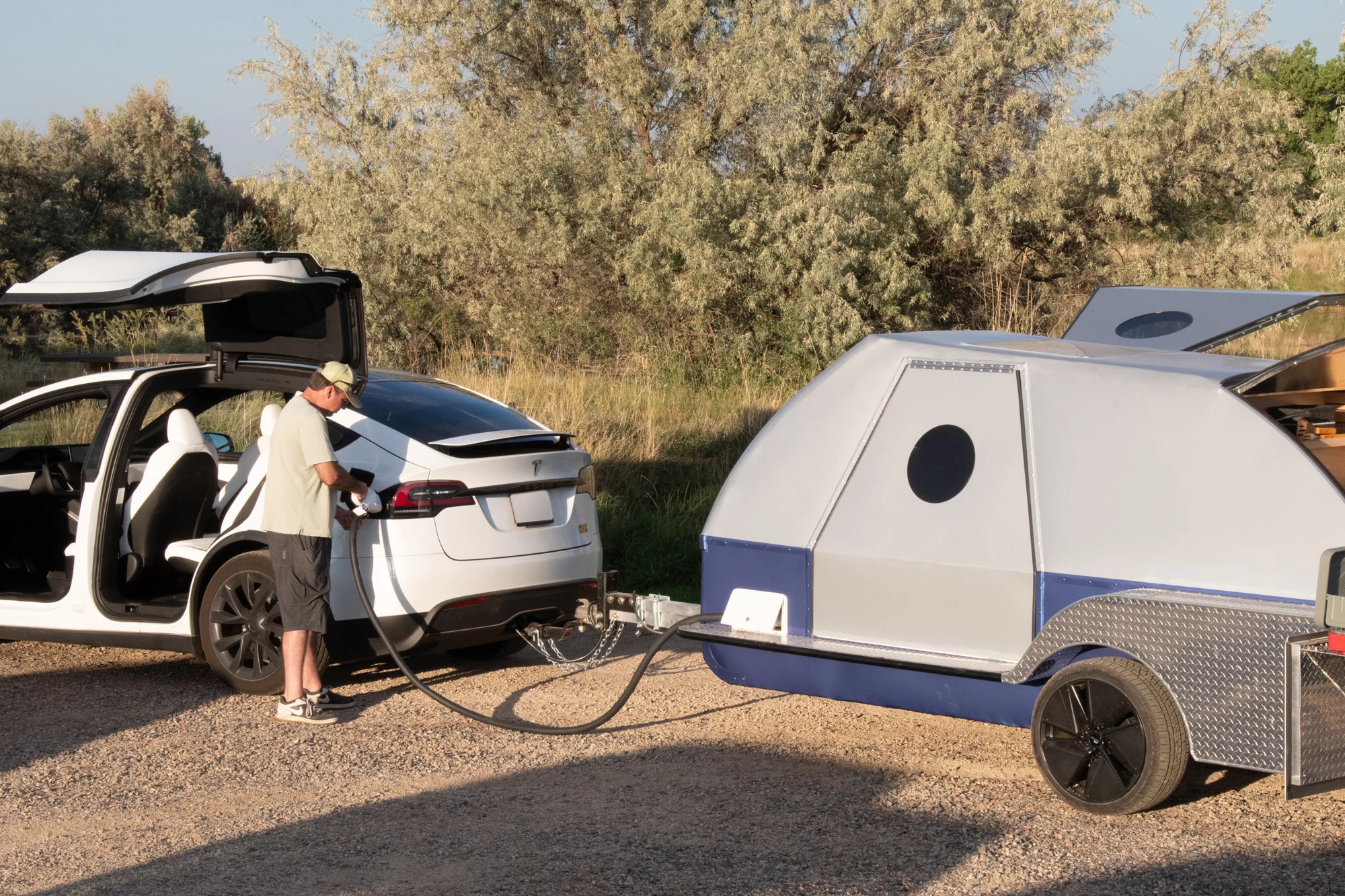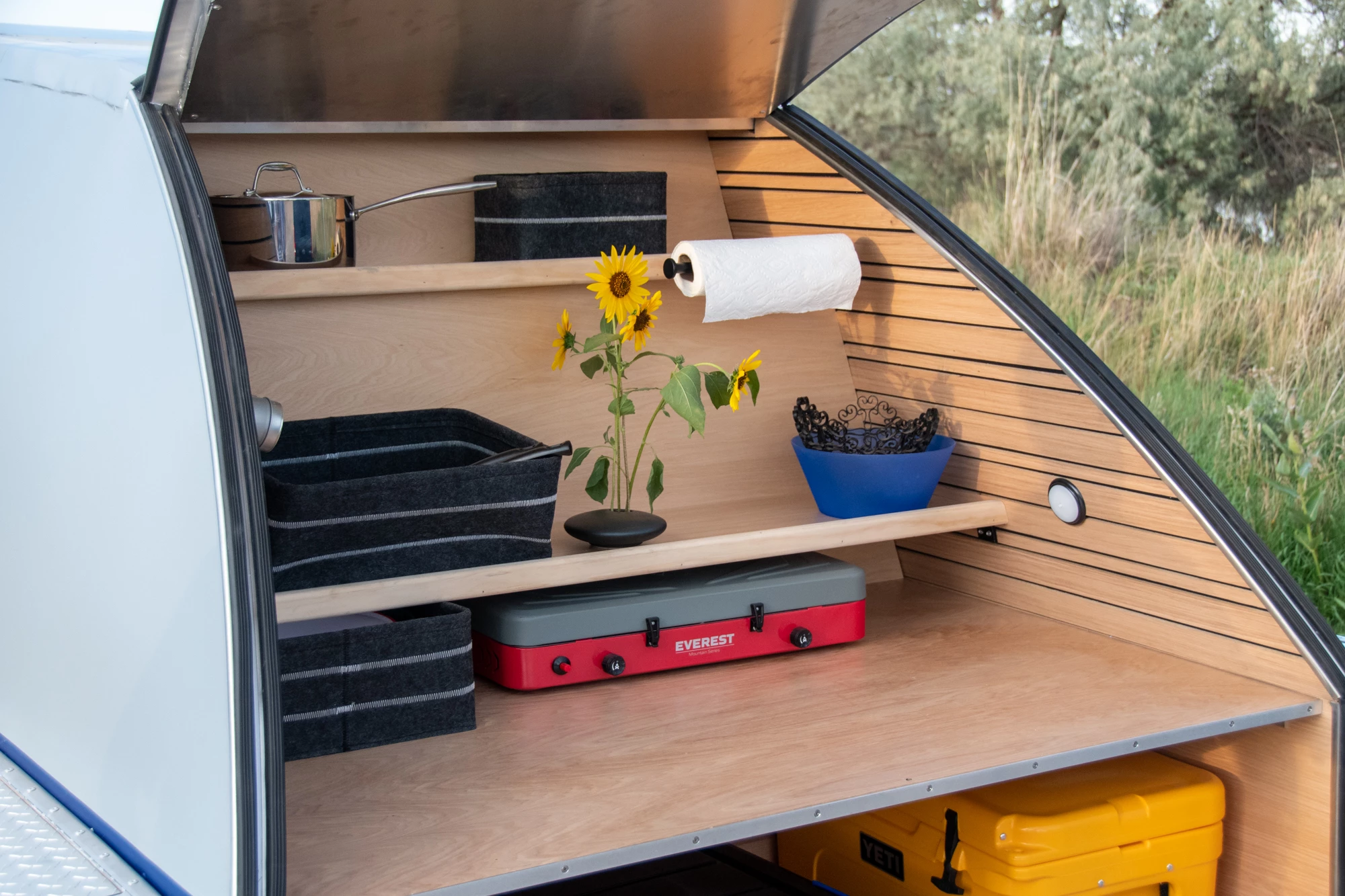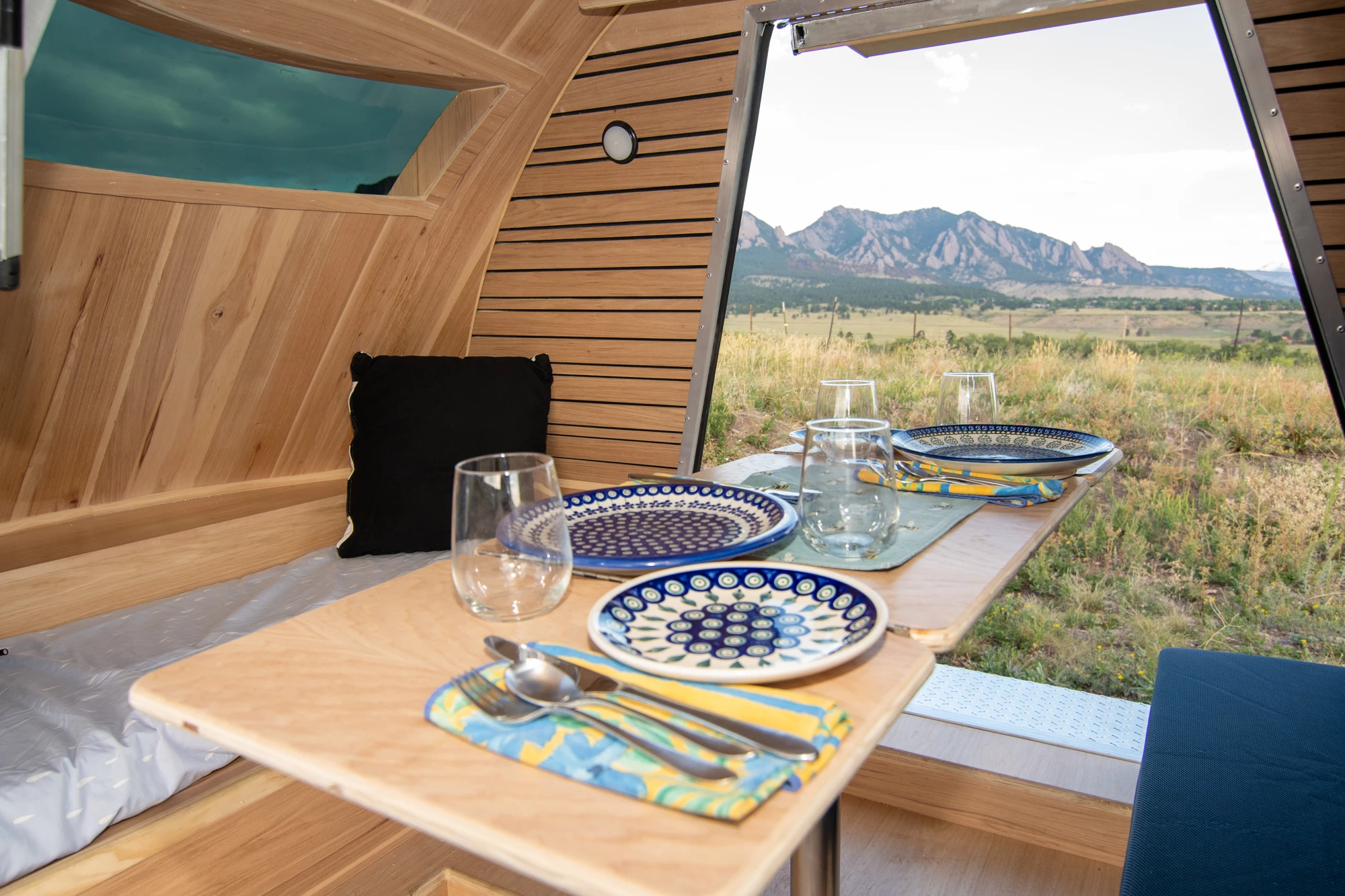Colorado may not hold a candle to Germany when it comes to electric camper van innovation, but it is slowly becoming a hotbed for electric camper trailers. Last year, following the Colorado Campworks NS-1 trailer and its all-electric camping package, Colorado Teardrops proposed a small trailer with a battery large enough to charge an electric tow vehicle – it would deliver more range while in tow than the vehicle would get without. What was previously a series of (very rough) Boulder renderings is now a working prototype, testing its way toward a planned 2023 market launch.
With tow loads capable of more than halving an EV's already limited range, trailer manufacturers are working quickly to innovate new solutions to the problem. The most visible has been Thor Industries/Erwin Hymer's cross-Atlantic effort to create an e-driven trailer that can cut its effective weight to zero, essentially powering itself behind the tow vehicle. Colorado Teardrops, on the other hand, presents a less complicated solution that involves loading its teardrop with a Tesla Model Y-sized battery large enough to power available electrical camping equipment and work as a range extender for the vehicle towing it.
Like many teardrop trailers, the Colorado Teardrops Boulder sits on a powder-coated steel frame with Dexter torsion suspension cushioning the wheels. Unlike those many teardrop trailers, this one has a 75-kWh 480-V battery pack integrated into its chassis build, keeping weight low and center.

One might expect that oversized trailer battery to support all kinds of power-hungry camping equipment and appliances, but to keep the pack as fresh as possible Colorado Teardrops limits its camper design to a largely structural build. There are some LED lights sipping off the battery and some 110-V outlets for plugging in, but the galley and interior comprise mostly just fixtures like a countertop, cabinets and dining table.
Colorado Teardrops plans to offer electrical options like an induction cooktop, coffee maker, A/C and fridge, but buyers are also free to use simpler, non-electrical solutions like a portable gas stove and an ice-filled cooler. In that way, the Boulder owner can manage battery power between appliances and range-extending vehicular charging without having a large standard electrical load out of the gate. Colorado Teardrops also plans to offer other power management solutions, including solar charging and a propane tank.

As far as its charging abilities go, the goal is for the production Boulder to offer bi-directional Level 3 fast-charging. Owners can charge it up at a fast-charging station ahead of time and then charge the tow EV once it gets low on battery. Colorado Teardrops estimates the trailer will zap about 100 miles (161 km) worth of range into the tow EV in a matter of 10 minutes, ultimately teaming with the base vehicle's initial full charge at trip start to offer a total range greater than the standard EV range without the trailer in tow. So, like the Dethleffs e.Home Coco and Airstream eStream, the Boulder essentially "carries its own weight," only in a different way.

In addition to increased range, a real advantage of the Boulder design is lessening or possibly eliminating the need to stop at charging stations mid-trip and/or having to identify a campground with hookups that can support overnight EV charging. Drivers can run the battery down on the trip to camp, then charge up once they get there or in the morning before they leave.
Unfortunately, charging during driving, which would really make for a seamless trip, is not currently possible. Colorado Teardrops hopes to work with EV makers on making that happen in the future, but don't bank on a near-future OTA update as a main reason for buying the Boulder.
All that battery power doesn't currently come cheap, and there's no friendly government incentives to help out with buying a recreational camping trailer. At US$55,000 to start, the Boulder is exceptionally expensive for a teardrop, especially when you consider its largely empty, equipment-less base spec. Helping to take a little sting out of that price shock, the trailer is designed to sleep four people – rather than two – using a combination of 60 x 78-in (152 x 198-in) RV queen and two single bunk beds. Colorado Teardrops even says that a dog can fit in with those four people, though it definitely looks like things will get very cozy.

Colorado Teardrops offsets some of the massive weight gain of the 75-kWh automotive-grade battery pack with a lightweight aircraft-grade aluminum frame, insulated aluminum exterior walls and a polyurethane-sealed hickory wood interior. Having very little standard equipment also helps that mission, and the company estimates base dry weight at 2,200 lb (1,000 kg), leaving roughly 1,300 lb (589 kg) of payload before hitting the 3,500-lb (1,587-kg) rating of the suspension.
Colorado Teardrops is currently working to upgrade the Boulder prototype's Level 2 testing system to the Level 3 DC-to-DC fast-charging hardware it ultimately plans to offer in production. It is also working on securing a battery partner, and hopes to begin deliveries in the first half of 2023. Its original delivery target was right around now, so we won't be too surprised if that 2023 date slips to the second half of 2023 or beyond.
Specs and pricing are subject to change, of course, though Colorado Teardrops does offer interested buyers the opportunity to lock pricing in by putting down a reservation payment. In fact, a $10,000 downpayment secures a discounted $45,000 price.

Once the Boulder is rolling, Colorado Teardrops plans two additional models in the EV series, the 17-foot (5.1-m) Golden and the 27-foot (8.2-m) Denver. Both these larger travel trailers will carry more battery power, ranging between 125 and 200 kWh. To open up more complete interiors with standing room while still offering low, aerodynamic towing profiles, Colorado Teardrops intends to use a lifting hardshell design for both models.
Source: Colorado Teardrops

